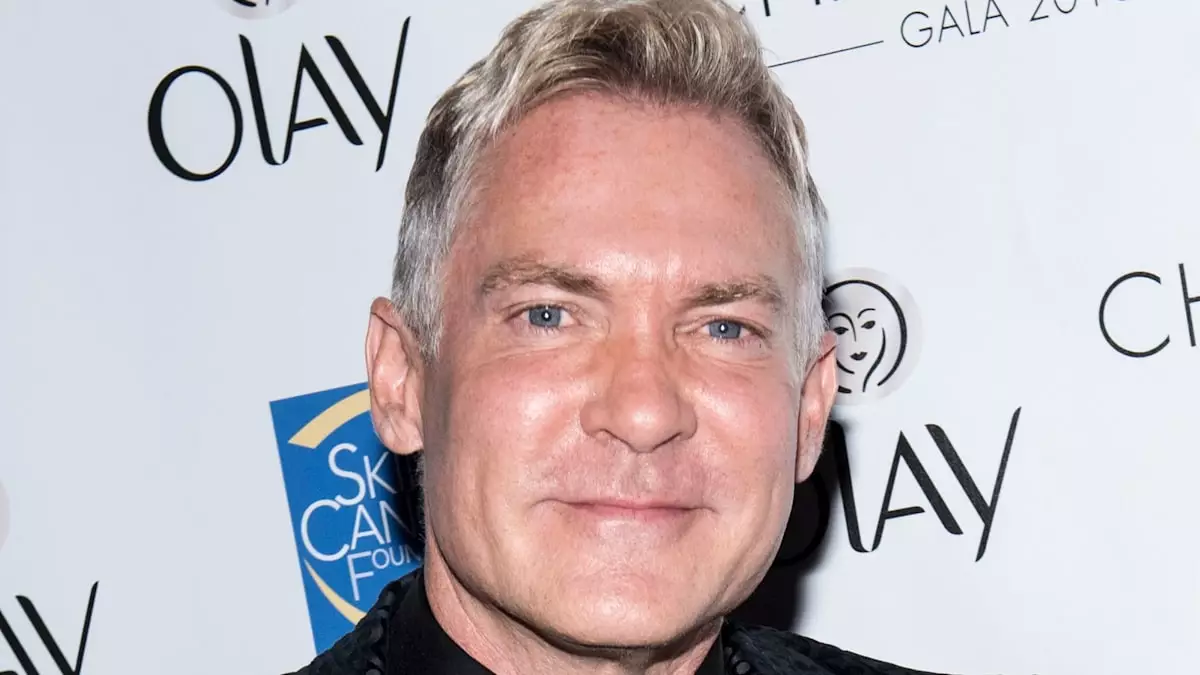In a world where health issues often remain shrouded in secrecy, Sam Champion—a prominent weatherman on Good Morning America—has taken a brave step to shed light on his personal struggle with skin cancer. The 63-year-old television anchor recently opened up about his health challenges, emphasizing the importance of awareness and vigilance in skin care. As he exposes his journey to the public, Champion highlights the significant role of early detection, treatment advancements, and the community’s support in combating this widespread disease.
Sam Champion’s experience with skin cancer is not a new one. His initial diagnosis at just 26 years old came as a surprise, much like it does for many young adults. As Champion stated, “I want you to be prepared for it,” emphasizing that skin cancer does not discriminate by age. It serves as a stark reminder that even youthful, seemingly resilient skin can fall victim to the dangers of sun exposure. His story resonates with many who may not consider themselves at risk, urging the public to take skin health seriously, regardless of their age or skin type.
Champion’s recent diagnosis of basal cell carcinoma led him to undergo what is known as Mohs surgery—a specialized technique that removes skin cancer while preserving healthy tissue. This precise surgical approach is crucial in treating skin cancer effectively, allowing for thorough removal with minimal scarring. The operation involved removing thin layers of skin until the cancerous cells were completely eradicated, a process Champion documented on social media to raise awareness about skin health.
Returning to work a mere two weeks post-surgery, Champion shared his raw experience with his followers, including images of his journey from surgery to recovery. The scar under his eye serves as a physical reminder of his battle but also as a motivational symbol for others who may face similar health challenges. His transparent communication showcases not only his resilience but also his desire to inform and inspire others.
Champion’s story transcends his personal struggle; it serves as a powerful advocacy platform for sun safety. During his public appearances, he passionately conveyed the message that everyone, irrespective of skin tone and type, should prioritize sun protection. He firmly believes that advancements in skincare, such as better sunscreens and treatments for pre-cancerous areas, should empower individuals to be proactive. With a universal message: “It’s everybody’s issue,” he underscores that skin cancer can affect anyone, highlighting the need for preventive measures.
As he mentions, the vigilance required in skin analysis is crucial; noticing any changes in moles or skin texture should prompt immediate consultation with a trustworthy dermatologist. This proactive stance towards skin health could potentially save lives by fostering a culture of awareness and early detection.
Throughout his treatment, Champion was never alone. The unwavering support from his co-workers and his husband, Rubem Robierb, has been monumental in his journey. Their encouragement and love have provided the emotional backbone for Champion as he navigates the uncertainties of his health. This aspect of his story showcases the vital role community plays in healing. It’s a reminder that reaching out for support during health battles is not just beneficial but also essential for recovery.
Sam Champion’s candid reflections on his experiences with skin cancer have sparked an essential conversation about the importance of skin health. By sharing his journey, he encourages others to take an active role in monitoring their skin and seeking medical attention if changes occur. His journey exemplifies the significance of awareness, education, and community strength in the face of health challenges. Ultimately, his narrative is a powerful reminder that through shared experiences and knowledge, we can collectively combat the threat of skin cancer. Champion’s story is not just about his struggle; it’s a call to action for every individual to prioritize their health and well-being in the face of an ever-present risk.

